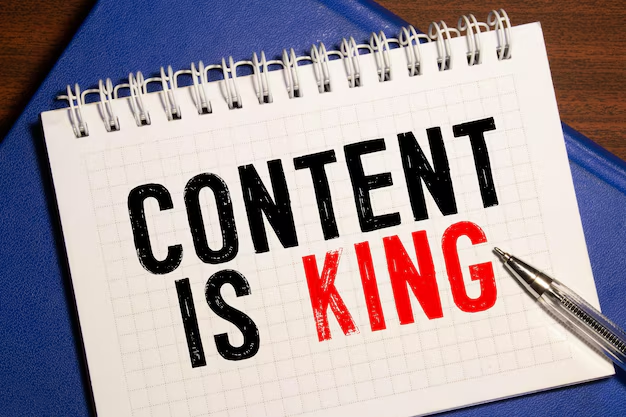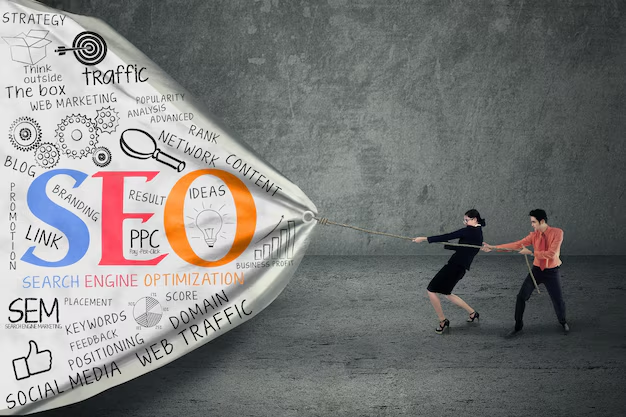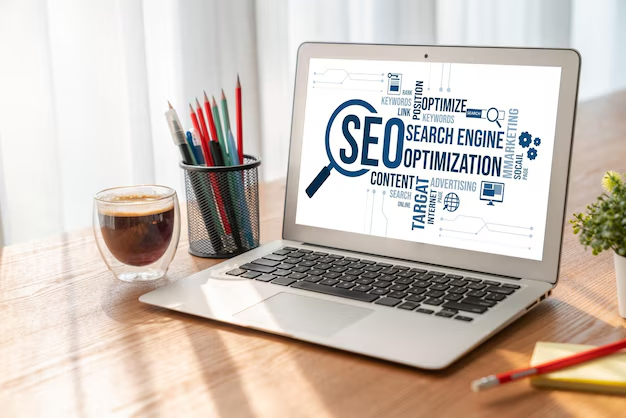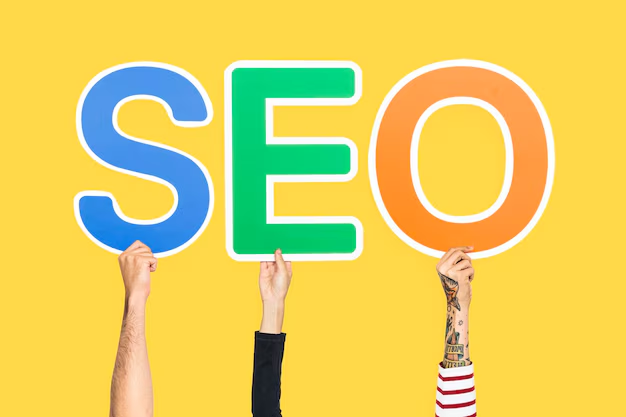In today’s digital age, having a strong online presence is crucial for any business, and the cleaning industry is no exception. Whether you’re running a residential cleaning service or a commercial cleaning business, optimizing your website for search engines is essential to attract more customers and generate more leads. If you’re struggling to get your cleaning business noticed on Google, don’t worry! With the right SEO strategies, you can easily rank higher in search results and get more leads fast. In this guide, we will walk you through proven cleaning business SEO hacks that will help your website climb the search engine ranks and boost your visibility.
If you’re looking for free SEO consultation, you can get personalized advice that will help improve your cleaning business’s online presence.
Understanding SEO for Cleaning Businesses
Before diving into the SEO hacks, it’s important to understand what SEO is and why it matters for your cleaning business. SEO, or Search Engine Optimization, is the process of improving your website’s visibility in search engine results pages (SERPs) when potential customers search for relevant keywords. For example, if someone searches for “best cleaning service near me,” you want your business to appear on the first page of search results.
The goal of SEO is to make your website more attractive to search engines like Google, so they rank it higher in search results. This helps increase your online visibility, drive more traffic to your site, and ultimately generate more leads.
Keyword Research: The Foundation of SEO for Cleaning Businesses

The first and most important step in any SEO strategy is keyword research. Keywords are the terms and phrases potential customers use to search for cleaning services. Identifying the right keywords will help you optimize your website content effectively and attract the right audience.
How to Conduct Keyword Research for Your Cleaning Business
Start by brainstorming a list of keywords related to your cleaning services. Think about what people might search for when they need cleaning help. For example, keywords like “house cleaning services,” “office cleaning services,” or “move-in cleaning” could be relevant for your business. You can also use tools like Google Keyword Planner, SEMrush, or Ahrefs to discover additional keyword ideas based on search volume and competition.
Once you have a list of target keywords, make sure to include both short-tail and long-tail keywords. Short-tail keywords are more general and have higher competition, while long-tail keywords are more specific and often have lower competition. For example, “house cleaning services” is a short-tail keyword, while “affordable house cleaning services in [your city]” is a long-tail keyword.
Optimizing Your Website Content for Keywords

Now that you have your list of target keywords, it’s time to optimize your website content. Make sure to naturally integrate your keywords into important places on your website, such as:
- Title tags: Your title tag is one of the first things search engines and users see. Make sure your target keywords appear in your title tag to increase your chances of ranking for those terms.
- Meta descriptions: Although meta descriptions don’t directly impact rankings, they do influence click-through rates. Include your target keywords in the meta description to make it clear what your page is about.
- Headers: Use headers (H1, H2, H3, etc.) to structure your content and include your keywords in those headers. This helps search engines understand the main topics of your page.
- Content: Incorporate your target keywords naturally into your page content. Don’t overstuff keywords, as this can negatively impact your rankings. Aim for a natural flow of content that provides value to your readers.
- Image alt text: Don’t forget about images on your website! Use descriptive, keyword-rich alt text for each image to improve your SEO and make your site more accessible to users.
On-Page SEO: Optimize Your Website for Search Engines

On-page SEO refers to the optimization of individual pages on your website to improve their ranking in search results. Here are some essential on-page SEO strategies for cleaning businesses:
Optimize for Mobile Users
With the increasing use of smartphones, it’s essential to ensure that your website is mobile-friendly. Google considers mobile-friendliness as a ranking factor, so if your website isn’t optimized for mobile, you could be losing valuable traffic and rankings. Make sure your site is responsive, meaning it adjusts to different screen sizes and provides a seamless user experience on mobile devices.
Improve Site Speed
Site speed is another critical factor for SEO and user experience. If your website takes too long to load, visitors are more likely to leave before it fully loads, which increases your bounce rate and negatively impacts your rankings. Use tools like Google PageSpeed Insights to analyze your site’s speed and identify areas for improvement. Some common solutions include compressing images, minifying CSS and JavaScript, and using a content delivery network (CDN).
Create High-Quality, Engaging Content
Creating high-quality, engaging content is essential for both SEO and attracting potential customers. Blog posts, service pages, FAQs, and case studies are excellent opportunities to provide valuable information to your audience while incorporating your target keywords. Here are some content ideas for cleaning businesses:
- How-to guides: Create step-by-step guides on cleaning-related topics (e.g., “How to Clean Your Kitchen Like a Pro”).
- Customer testimonials: Showcase happy clients and their experiences with your cleaning services.
- FAQs: Address common questions customers have about your services, pricing, and process.
Not only does high-quality content improve SEO, but it also builds trust with your audience and establishes your authority in the cleaning industry.
Add Local SEO to Rank in Your Area

Local SEO is especially important for cleaning businesses since most of your customers will likely be in your local area. To optimize for local search, follow these steps:
- Claim and optimize your Google My Business (GMB) profile: Your GMB listing is a critical factor for local SEO. Ensure your business name, address, phone number, and website URL are accurate and consistent across all platforms.
- Add location-based keywords: Include the name of your city, neighborhood, or region in your target keywords to ensure your website ranks for local searches (e.g., “cleaning services in [city]”).
- Get reviews: Encourage your satisfied customers to leave reviews on Google and other review platforms. Positive reviews not only improve your local SEO but also enhance your credibility and reputation.
Internal Linking for Better Navigation
Internal linking refers to linking to other pages on your website. This helps search engines crawl your site more effectively and improves user experience by making it easier for visitors to navigate. For example, if you have a blog post about residential cleaning services, you can link to your main service page for residential cleaning. This improves the overall structure of your website and boosts SEO.
If you’re looking for fully managed SEO services, these can help you manage your internal and external linking strategies, ensuring your website gets the most out of SEO.
Off-Page SEO: Building Your Website’s Authority

Off-page SEO focuses on building the authority of your website through external factors like backlinks and social media signals. Here are some off-page SEO strategies that will help improve your cleaning business’s rankings:
Build High-Quality Backlinks
Backlinks, or inbound links, are links from other websites that point to your site. Google sees backlinks as “votes of confidence” for your content. The more high-quality backlinks you have, the higher your website will rank in search results. Here are some ways to build backlinks for your cleaning business:
- Guest blogging: Write guest posts for reputable blogs in the home services or cleaning industry, and include a link back to your website.
- Local business directories: List your business in local directories like Yelp, Yellow Pages, or your chamber of commerce’s website.
- Collaboration with local influencers: Partner with local influencers or bloggers in your industry to get featured on their websites or social media accounts.
Leverage Social Media
Social media signals, such as likes, shares, and comments, can indirectly affect your SEO. The more engagement your content gets on social media, the more likely it is that people will share it, increasing your chances of earning backlinks. Make sure your business has an active presence on social media platforms like Facebook, Instagram, LinkedIn, and Twitter.
Track Your SEO Progress and Make Adjustments
 SEO is an ongoing process, and it’s important to track your progress to see what’s working and what needs improvement. Use tools like Google Analytics and Google Search Console to monitor your website’s traffic, rankings, and other important SEO metrics. If you’re not seeing the results you want, consider adjusting your keyword strategy, content, or backlinks.
SEO is an ongoing process, and it’s important to track your progress to see what’s working and what needs improvement. Use tools like Google Analytics and Google Search Console to monitor your website’s traffic, rankings, and other important SEO metrics. If you’re not seeing the results you want, consider adjusting your keyword strategy, content, or backlinks.
Hire an SEO Expert to Boost Your Results
If you’re struggling to implement SEO for your cleaning business on your own, consider hiring an expert. An SEO professional can help you develop a customized strategy, implement best practices, and ensure your website is optimized for maximum performance. If you’re interested in getting started, you can reach out for free SEO consultation to get personalized advice tailored to your business.
Conclusion
SEO is an essential part of any cleaning business’s online marketing strategy. By implementing these SEO hacks and optimizing your website for both users and search engines, you can increase your visibility, rank higher in search results, and attract more leads. Remember to stay consistent with your SEO efforts and track your progress to ensure long-term success. Whether you’re just getting started or looking to take your SEO to the next level, the right strategies will help your cleaning business thrive in the competitive online landscape.
You can learn more about SEO through this Wikipedia link.
 WhatsApp Now
WhatsApp Now
 +(91) 8700778618
+(91) 8700778618



